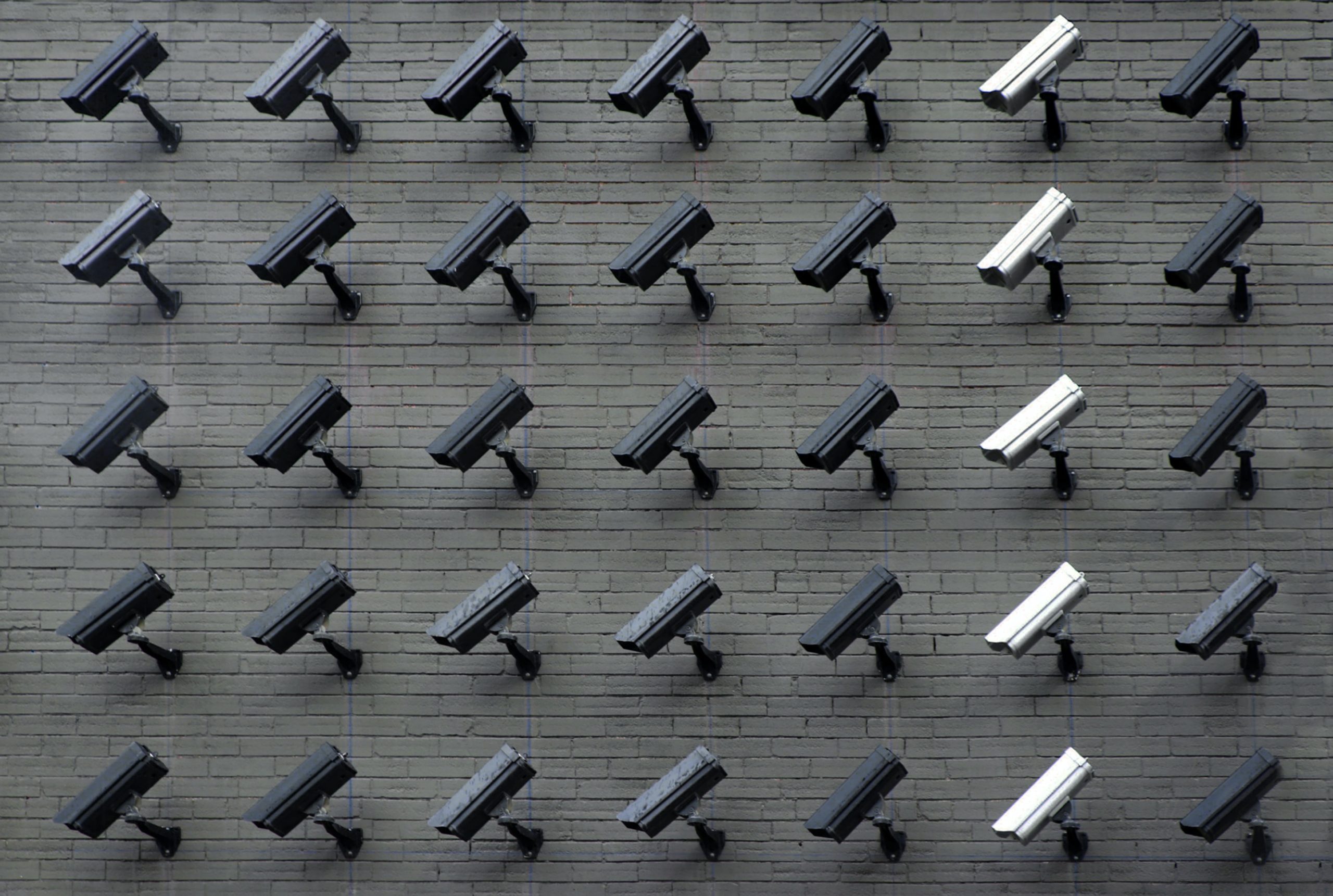Update, 6/12/2021: The 10th anniversary RightsCon has now wrapped! We’re grateful for your participation in our largest and most inclusive gathering yet. Watch the public sessions from the program on our YouTube channel, and stay in touch.
…
[A prisoner] is seen, but he does not see; he is the object of information, never a subject in communication. — Michel Foucault
The power structure Foucault describes using the metaphor of the panopticon — the prototype of a modern prison — is proliferating in workplaces. Employers today have access to more and more information about their employees, in some cases at a granular level, such as through AI-powered analysis of a worker’s facial micro-expressions. During the COVID-19 pandemic, this type of surveillance has only intensified. Meanwhile, employees are granted very little transparency regarding their employers, creating the perfect privatised panopticon.
More employees, including in Big Tech companies like Amazon, Google, and Facebook, are launching their own labour movements. However, workplace surveillance remains a challenge for these movements and it threatens human rights, particularly the right to privacy and the rights to freedom of association and assembly. Generally, labour laws are not sufficient to protect employees from surveillance in a modern digital organisation. That is why we need to bring labour rights into the digital rights discussion, and spearhead global efforts to defend people from these threats.
On 7-11 June, Access Now holds RightsCon, the world’s leading summit on human rights in the digital age. Among the sessions we are co-hosting is one with European Digital Rights (EDRi) entitled, The Privatised Panopticon: Workers’ Surveillance in the Digital Age, on Friday, 11 June from 12:15 to 13:15 (EDT), 18:15 to 19:15 (CET/Brussels time).
The speakers are: Renata Ávila of the #MakeAmazonPay campaign, Nick Rudikoff of UNI Global Union, a global union federation for the skills and services sectors, and Gustaf Björksten, Chief Technologist at Access Now. The session ID# is 12145.
If you’re registered for RightsCon and want to learn more, this post gives you a preview of our discussion, exploring how workers are being surveilled and how trade unions (and employees who want to unionise) are fighting to protect digital rights. The session, which is held in a conversational format and is capped at 60 participants (first come-first serve), will also showcase digital security tools employee organisations can use to strengthen their mobilisation. We also preview a related RightsCon session below, on the freedom to protest.
If you missed the registration deadline, you can still participate in the conversation. Learn about our approach to convening safe, productive, and inclusive spaces, and stay tuned to the official RightsCon blog for details.
Why workers are especially vulnerable now
During the pandemic, we depend more on digital tools that make us vulnerable. Traditionally, people formed unions in a physical workplace. They often leveraged employee work breaks or used “water cooler” conversations to organise. Now, much of our work is conducted digitally, leveraging technology and digital communication channels. These channels may be useful, but they also expose us to sophisticated digital surveillance. The fact that we can anticipate employer surveillance and potential retaliation for organising can chill our right to free expression and freedom of association and assembly. Some employers may go so far as to blacklist a word like “unionise”.
Our zone of privacy is shrinking. In his 2015 report, David Kaye, the former U.N. Special Rapporteur on freedom of expression, stressed that “[a] zone of privacy online [is necessary] to hold opinions and exercise freedom of expression without arbitrary and unlawful interference or attacks.” But with the rise of workplace surveillance, that space is shrinking, and it is endangering labour movements and what Maina Kiai, former U.N. former Special Rapporteur on the freedom of assembly and association called “fundamental worker rights”. Privacy is essential for labour movements around the world, and it cannot be compromised.
How employee “privacy waivers” threaten rights
Surveillance of employees is not a new phenomenon. Due to the imbalance of power, employees across the globe have come to expect little or no privacy in the workplace. In the United States, employees often sign employment contracts that contain privacy waivers.
These blanket privacy waivers will only become more problematic as workplaces increasingly integrate and use digital technology. Employers are already tracking their employees’ activities via their equipment, networks, and devices — including as a way to monitor employee performance. They are using fitness trackers, emotional surveillance tools, and even microchip implants to get data on workers’ activities, and analyse the information they collect. The pandemic has given cover to surveillance conducted under the guise of health, safety, and the productivity of remote work.
We’re not done yet! Join us to talk about surveillance of protests
The growing movement for worker’s rights includes demonstrations and gatherings targeted for surveillance.
In addition to the session above, Access Now will host Surveilling Protest: how do we protect the right to peaceful assembly and association in the age of mass surveillance? (ID# 12866) at RightsCon, Tuesday, 8 June from 14:45 to 15:45 (EST), or 20:45 to 21:45 (CET/Brussels time). As we explain in our 2020 report, Defending peaceful assembly and association in the digital age: takedowns, shutdowns, and surveillance, government authorities around the world are deploying technology to monitor protests, threatening human rights. If you’re joining us for RightsCon, sign up for session ID# 12866 for a discussion featuring Thenmozhi Soundararajan, Dalit-American artist, technologist, and the Executive Director of Equality Labs; Munira Mohamed of the ACLU of Minnesota; and Clément Voule, the U.N. Special Rapporteur on the rights to freedom of peaceful assembly, and learn how surveillance of protests harms human rights and how to fight back. This session is also held in a world café format, and there’s a participant cap of 60 (first-come, first-serve).
We hope to see you there!
